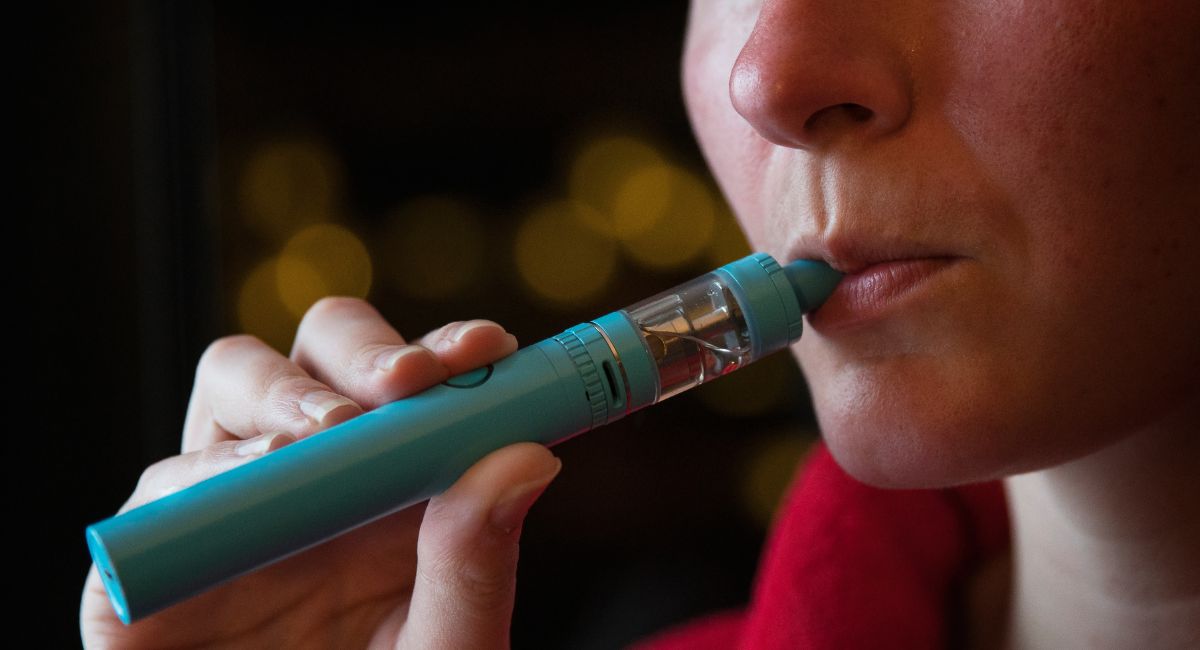
E-cigarette use has grown in popularity among young adults — including college students — over the past decade. E-cigarettes appeal to young adults due in part to their array of flavors, addictive properties, and targeted marketing toward this age group. While the negative impacts of nicotine on physical health are well-known, researchers want to understand the association between mental health and use of e-cigarettes and other substances.
This was the focus of research published in May in the journal Tobacco Prevention & Cessation, led by first-author Marie Kava, clinical assistant professor of health systems and population health at the University of Washington School of Public Health.
The study found that 95% of college students who used e-cigarettes had also used other substances within the past 30 days. The most common substances used were alcohol, cannabis and e-cigarettes. Researchers examined whether students had been diagnosed with or treated for a mental health issue within the past 12 months and whether students experienced any psychological distress. Compared to students who did not use substances, students who used e-cigarettes and other substances experienced poorer mental health outcomes.
The study used data from 55,654 undergraduate college students ages 18-24 at 138 institutions who partook in the fall 2018 and spring 2019 National College Health Assessment. Majorities of the sample identified as cisgender women (68%), straight (80%), and white (59%) and attended four-year (91%) and public (66%) institutions.
Cigarette use has dramatically declined over the past few decades among young adults, which is why the rise in e-cigarettes and other vaping products has been concerning for public health practitioners and researchers. E-cigarettes contain nicotine, which is highly addictive and can harm brain development as well as parts of the brain that control attention, learning, mood and impulse control, the CDC reports.
“Tobacco control is a really important public health issue,” Kava said. “Tobacco can cause so many different diseases. People usually start smoking before the age of 18, so thinking about ways to prevent substance use at an early age is really important. To help college students be well equipped in that transition period of going from childhood to adulthood, we should think about prevention and how we address these issues early so people can be set up for success and have the best health outcomes.”
Addressing the mental health of college students has been a priority across many U.S. college campuses over the past few years, as reports of mental health concerns have been increasing. The national Healthy Minds Study found that in 2020–2021, more than 60% of students met the criteria for one or more mental health problems. This was almost a 50% increase from 2013.
The study Kava led could not say whether this multi-substance use caused poor mental health amongst this particular group of college students, or whether poor mental health led to using these substances. Still, Kava said that understanding how the use of popular substances could play a role in mental health is useful for developing programs to support college students.
“When you are developing interventions, it’s important you’re not focusing in isolation on just mental health or substance use, because they potentially interact,” she said.
Kava hopes to see additional research done on this topic with newer data, as the mental health needs of college students may have changed since the pandemic, she said. Additionally, more policies are now in place to help regulate substances like e-cigarettes. All states now restrict people who are underage from purchasing e-cigarettes (for most states, this is age 21), while some states also have taxes on e-cigarettes and others ban flavored e-cigarettes.
Kava, who is the first author, collaborated on the research with colleagues at the University of Iowa, including Shannon Lea Watkins, Paul A. Gilbert, Tanya J. Villhauer, Trisha L. Welter, and Rima A. Afifi.